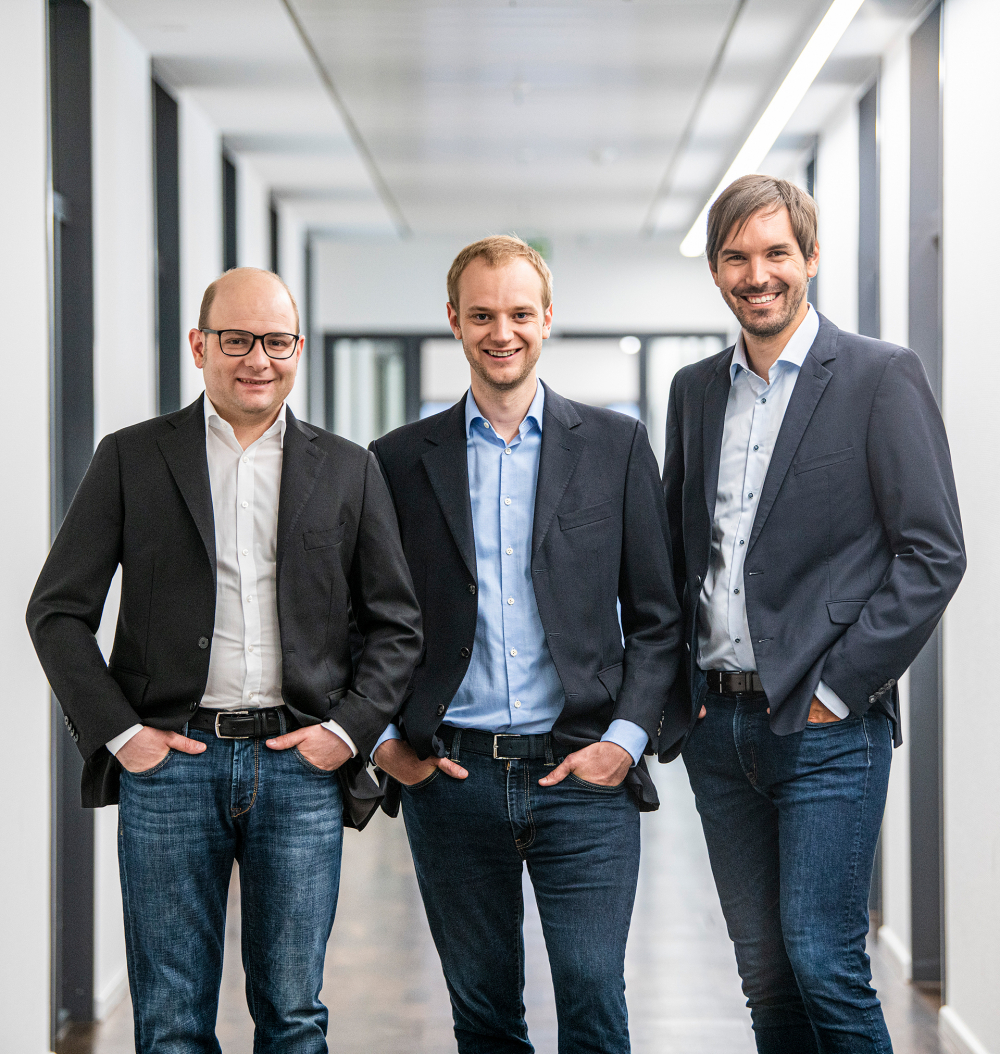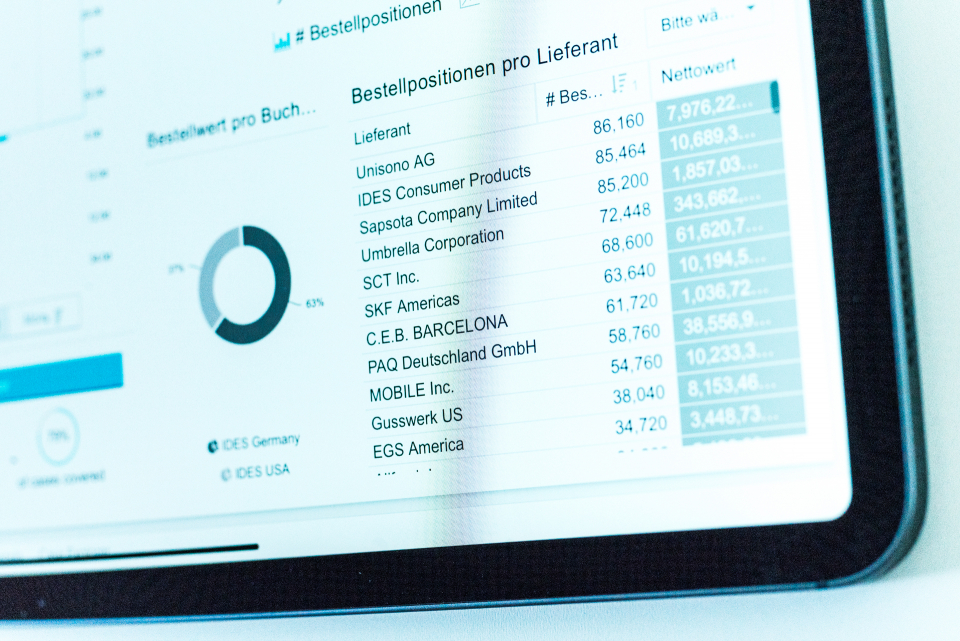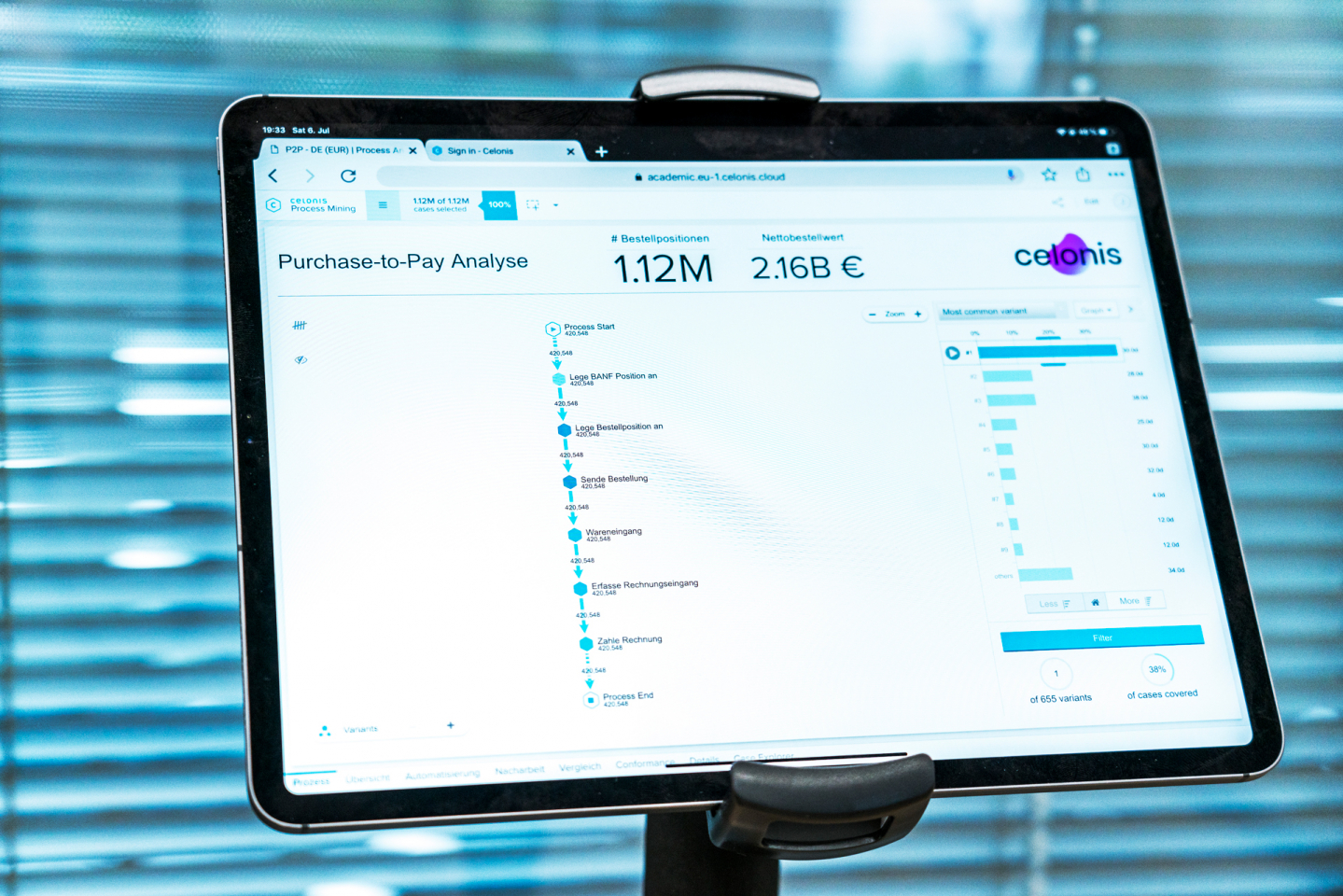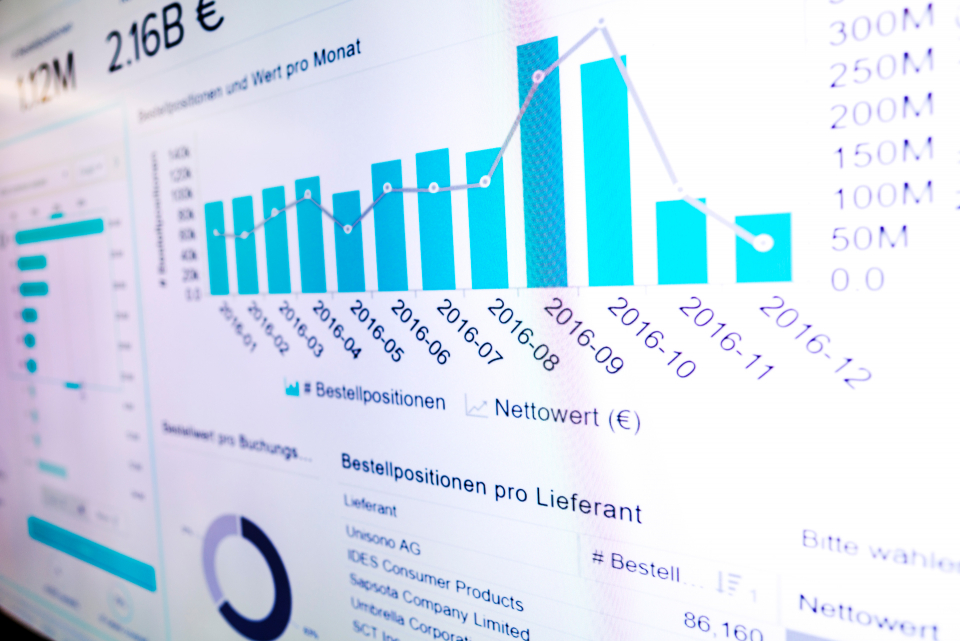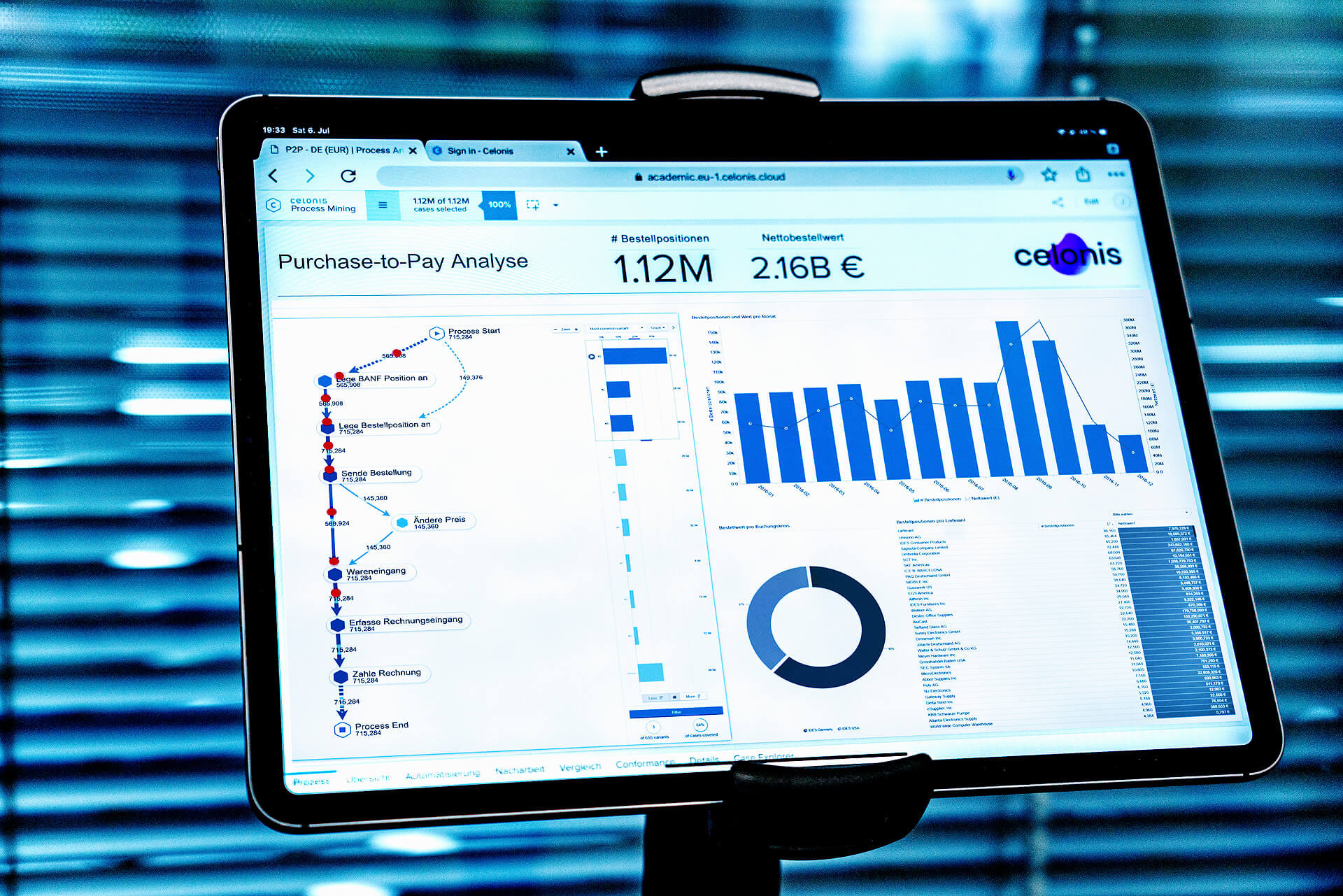
Winner 2019
Process Mining
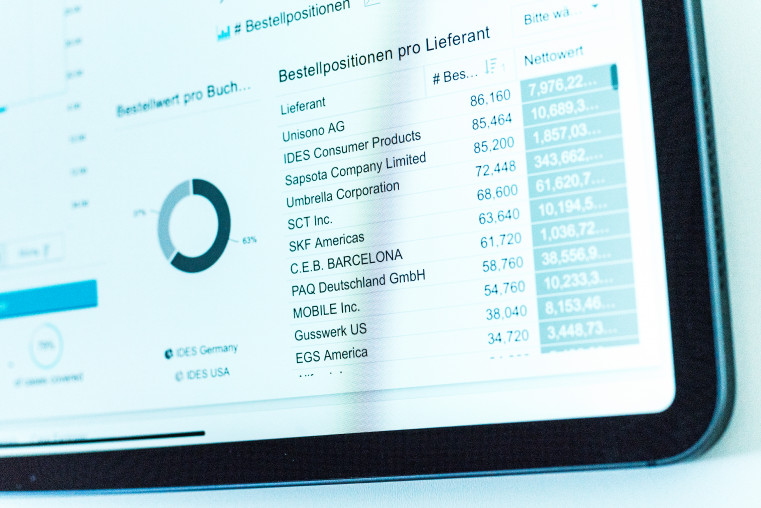
Alexander Rinke, Martin Klenk and Bastian Nominacher have created versatile and easy to use software specifically for this purpose: an innovative method of visualizing, analyzing and monitoring processes thoroughly to take actions for improvement. Process mining can be used in all areas and at every level of business, visualizes even the most complex and interwoven processes and, as an operational system, proposes suggestions for beneficial changes.
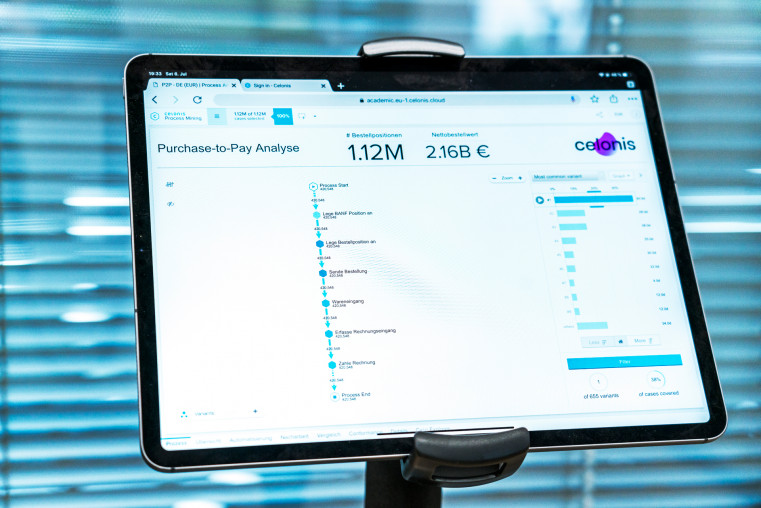
The three nominees are the founders and CEOs of Celonis SE - a company that began as a start-up at the Technical University Munich. Bastian Nominacher is responsible for European business as well as Operations and Finance. Alexander Rinke heads the main office for North America in New York and is responsible for corporate strategy. Martin Klenk is the head of product development and innovation.
More Details
Resume
Alexander Rinke
- 3.04.1989
- Born in Munich, Germany
- 1999 - 2007
- Abitur at Werner-von-Siemens Gymnasium, Berlin, Germany
- 2007 - 2010
- Mathematics program, Technical University Munich, Degree: Bachelor of Science
- 2005 - 2007
- Founder and manager SNV Berlin GbR, agency for tutoring services for Berlin school kids
- 2007
- Internship portfolio management, Inter Hannover, Bracknell, UK
- 2007 - 2010
- Founder and team lead of the taskforce “strategy and structure”, various consultancies projects with industry partners, Academy Consult Munich e.V., Munich, Germany
- 2008
- Internship casualty underwriting, client management and innovative solutions team for China and Southeast Asia, Munich RE, Munich, Germany
- 2008 - 2009
- Part-time work development and maintenance of algorithmic trading systems, KK Invest GmbH, Munich, Germany
- 2009
- Working student client management for China and Southeast Asia, Munich RE, Munich, Germany
- 2009 - 2010
- Semester abroad at École Polytechnique, Paris, France
- 2010 - 2011
- Internship portfolio and client management in the claims department, Munich RE, Hong Kong, China
- Since 2011
- Co-Founder and Co-CEO, Celonis SE, Munich, Germany
Primary responsibilities: Corporate strategy, product strategy, sales US and Latin America
Further Occupations
- 2003 - 2009
- Several positions in the Schüler Union, the Junge Union and the CDU Berlin, among others as a member of the state executive committee of the Schüler Union Berlin, deputy leader of the district association Steglitz Zehlendorf and member of the board CDU Wannsee
- 2006 - 2007
- Elected representative of the school, Werner-von-Siemens Gymnasium, Berlin, Germany
- 2009
- Spokesman of the Remember Internship Community Program, Munich RE, Munich, Germany
- 2017 - 2019
- Member of the advisory board at Oetker Digital
- Since 2018
- Member of the Forbes Technology Council
Honors and Awards
- 2010
- Scholarship of the German National Academic Foundation
- 2013
- German Silicon Valley Accelerator Award
- 2015
- SAP HANA Innovation Award
- 2015
- TUM Presidential Entrepreneurship Award
- 2015 and 2016
- Deloitte Fast50 Award
- 2016
- SAP HANA Innovation Award
- 2016
- Forbes “30 under 30 Europe” Science & Healthcare
- 2016
- Ernst & Young Entrepreneur of the Year Award
- 2017
- Innovation of the Year by brand eins Wissen and Statista
- 2019
- German Innovation Award, Category: Medium-sized companies
- 2019
- Lünendonk-B2B-Service Award, Category: Innovation
Martin Klenk
- 19.01.1987
- Born in Herrenberg, Baden-Wuerttemberg, Germany
- 2006
- Abitur at Schickhardt-Gymnasium, Herrenberg, Germany
- 2006 - 2007
- Alternative service, Stiftung Pfennigparade, Stationäre Wohngruppen gGmbH, Munich, Germany
- 2006 - 2010
- Freelance IT trainer for IT security infrastructures, Munich, Germany
- 2007 - 2010
- Computer science program, Technical University Munich, Germany, Degree: Bachelor of Science
- 2008 - 2010
- Departmental manager for IT, various consultancies projects with industry partners, Academy Consult Munich e.V., Munich, Germany
- 2009
- Working student for the development of a tool for automated quality monitoring in Matlab/Simulink, CQSE GmbH, Munich, Germany
- 2009 - 2010
- Co-Founder, ticker2.de, content-management-system for digital signage and info screens, Munich, Germany
- 2010 - 2012
- Computer science program (Masters), Technical University Munich, Germany, No final degree due to founding of Celonis GmbH
- Since 2011
- Co-Founder and Chief Technology Officer, Celonis SE, Munich, Germany, Primary responsibilities: Development
Further Occupations
- 2003 - 2006
- Culture Café (Kulturcafé), Schickhardt-Gymnasium, Herrenberg, Germany
- 2003 - 2005
- Leader of Linux group, Schickhardt-Gymnasium, Herrenberg, Germany
- 2003 - 2005
- Founder and manager of internet café for school kids, Schickhardt-Gymnasium, Herrenberg, Germany
Honors and Awards
- 2006
- Best graduate, Schickhardt-Gymnasium Herrenberg
- 2006
- Ferry-Porsche-Award for excellent achievements in mathematics and physics
- 2006
- Winner of the German federal competition in mathematics
- 2007 - 2012
- Scholarship of the German National Academic Foundation
- 2013
- German Silicon Valley Accelerator Award
- 2015
- SAP HANA Innovation Award
- 2015
- TUM Presidential Entrepreneurship Award
- 2015
- Deloitte Fast50 Award
- 2015 and 2016
- SAP HANA Innovation Award
- 2016
- KfW Founders Champion Award
- 2016
- Ernst & Young Entrepreneur of the Year Award
- 2017
- Innovation of the Year by brand eins Wissen and Statista
- 2019
- German Innovation Award, Category: Medium-sized companies
- 2019
- Lünendonk-B2B-Service Award, Category: Innovation
Bastian Nominacher
- 22.11.1984
- Born in Munich, Germany
- 1995 - 2001
- Lena-Christ Middle School, Markt Schwaben, Germany
- 2001 - 2004
- Apprenticeship as IT Systems Sales Specialist, EBC-Computer Vertriebs GmbH, Markt Schwaben, Germany
- 2004 - 2005
- Dr.-Herbert-Weinberger vocational college, Erding, Germany, Degree: University of applied sciences entrance qualification (Fachhochschulreife)
- 2005 - 2008
- Information Systems and Management program, University of Applied Sciences Munich, Germany, Degree: Bachelor of Science
- 2005 - 2011
- Departmental manager for IT systems and co-founder of the Competence Centers for Business Technology, various consultancies projects with industry partners, Academy Consult Munich e.V., Munich, Germany
- 2007
- Internship IT service management, Accenture GmbH, Munich, Germany
- 2007 - 2008
- International Business Studies program, University of Glamorgan, UK, Degree: Bachelor of Arts
- 2008
- Additional qualification “Data Protection and Security”, University of Applied Sciences Munich, Germany
- 2008
- Bachelor’s thesis in Transaction Integration Services, Ernst & Young GmbH, Munich and Dusseldorf, Germany
- 2008 - 2011
- Elite Graduate Program Finance and Information Management, University of Augsburg, Technical University Munich and Elite Network Bavaria, Augsburg and Munich, Germany, Degree: Master of Science with Honors
- 2009
- Internship Strategy & Change, IBM AG, Ingolstadt, Germany
- Since 2011
- Co-Founder and Co-CEO, Celonis SE, Munich, Primary responsibilities: Sales, Finance and Operations
Further Occupations
- 2006 - 2007
- President of the council, Bavaria Plus Network, Munich, Germany
- Since 2009
- Author of several academic publications about IT carve-outs and post-merger integration
- Since 2012
- Business angel und chairman of advisory board, Talentry GmbH, Munich, Germany
- Since 2012
- Business angel and chairman of advisory board, Testbirds GmbH, Munich, Germany
- 2016 - 2018
- Advisory board member, Academy Consult München e.V., Munich, Germany
- Since 2017
- Advisory board member, InstruNEXT GmbH, Munich Germany
Honors and Awards
- 2004
- Acknowledgment by the capital of the federal state Munich for special achievements in school
- 2005
- Award by the Franz-Eisenreich school foundation
- 2007 - 2011
- Scholarship by the Max Weber-Program of the state of Bavaria
- 2008
- Winner of the Importance of Sustainability Competition, Cardiff Business Club, Glamorgan Business School
- 2008
- Winner of the Glamorgan Business School Prize, best overall performance at final year in International Business Studies
- 2008
- Acknowledgement by IBM as best graduate in Information Systems and Management
- 2013
- German Silicon Valley Accelerator Award
- 2015
- SAP HANA Innovation Award
- 2015
- TUM Presidential Entrepreneurship Award
- 2015
- Deloitte Fast50 Award
- 2015 and 2016
- SAP HANA Innovation Award
- 2016
- KfW Founders Champion Award
- 2016
- Ernst & Young Entrepreneur of the Year Award
- 2017
- Innovation of the Year by brand eins Wissen and Statista
- 2019
- German Innovation Award, Category: Medium-sized companies
- 2019
- Lünendonk-B2B-Service Award, Category: Innovation
Contact
Press
Jerome Geyer-Klingeberg
Head of Academic Alliance
Celonis SE
Theresienstraße 6
80333 München
Phone: +49 (0) 89 / 41 61 59 670
Mobil: +49 (0) 177 / 89 66 038
E-Mail: j.geyerklingeberg@celonis.de
Spokesperson
Alexander Rinke
Celonis SE
Theresienstraße 6
80333 München
Phone: +1 (0) 646 / 33 00 614
E-Mail: a.rinke@celonis.de
A description provided by the institutes and companies regarding their nominated projects
Processes are essential for the success of an organization: if they run smoothly, companies save money and resources but also guarantee customer satisfaction. Faulty process flows on the other hand lead to additional costs and furthermore have an impact on employee and customer satisfaction. Process inefficiencies can therefore pose a real threat to the livelihood of already well-established companies. Even one step further, process inefficiencies can have life-threatening consequences if, for example, the operational processes in the emergency room of a hospital are insufficient. The Celonis Process Mining software detects bottlenecks in the process by evaluating what is actually happening within an organization. This helps to actively prevent inefficiencies.
Companies and their customers interact in a digital world. Every transaction leaves countless traces in companies’ IT systems, in what are called event-logs. This information is stored by default for example in the ordering of goods, production and processing of service requests. The process mining technology of the three nominees uses this valuable data as a digital resource to optimize business processes.
Celonis founders Martin Klenk, Bastian Nominacher and Alexander Rinke use specific algorithms to visualize processes in real-time. Companies can detect bottlenecks quickly and save costs. The users get information about delays in delivery, reasons for high inventories, why orders might take longer, how to retain customers or how to comply with regulatory systems.
Based on the insights generated in the software, organizations can develop measures to reduce costs and resources as well as drive efficiency and productivity. This helps not only the company but also the customers: Lufthansa flights are on time, power plants at Uniper become more secure and customer service request at Uber are solved faster.
Process Mining reveals the real as-is process and shows exactly where difficulties lie. A gut feeling is validated by facts – irrespective of whether it comes to purchasing, production, logistics or sales. The technology’s potential lies in its diverse application in almost all corporate sectors and operating divisions.
The Celonis customers use the technology via the Intelligent Business Cloud (IBC). The IBC is an operative system that continuously learns and provides proactive recommendations before things go wrong. Based on Machine Learning and Artificial Intelligence, the IBC identifies when a subcontractor is apt to be late and directly suggests an alternative to the corresponding employee in the procurement team.
Digitalization has drastically changed the demands of consumers and customers. They expect timely delivery and straightforward service. Companies like Amazon, Google and Uber set standards for the speed of processes which in turn represents a major challenge for many traditional enterprises. Their processes, which have grown and developed over the years, are often not as efficient as they could be. What is surprising about this is that even seemingly simple processes are error-prone and often occur in hundreds of undesired variants. Celonis gives an intuitive access to detecting these inefficiencies and proactively provides recommendations for improvement.
Future Prognosis
The Celonis software not only looks into the past. It also makes future-looking prognoses for which it reconstructs the processes in the company to ultimately improve them or prevent bottlenecks and deviations in the first place. Every member of an organization – from all hierarchy levels and departments – can use the tool to make their everyday decisions data-based and transparent. Process Mining therefore crucially changes the way people work in an organization and empowers them to be drivers of digital transformation.
With Celonis the three nominees developed Process Mining into a widely used and broadly applicable key technology that sets new standards for process transparency, agility and proactive process optimization at a global level. However, this is not just about saving costs and efficiency enhancements for companies. They are aiming to achieve a great deal more than that. The insights generated with Celonis can also be used to encourage more sustainable management, for example by reducing emissions and resources in the production process.
The Celonis Process Mining technology is used by more than 200.000 process miners in over 600 companies and over 20 industries worldwide. Customers are ABB, Airbus, Bayer, BMW, Edeka, Innogy, Siemens and Vodafone which now offer a better customer experience and realized millions of savings with Celonis. The software is also used by medium-sized enterprises such as Schukat electronic.
Celonis Success Story: From Start-up to International Enterprise
Celonis grew from a student start-up founded in 2011 by students of Technical University of Munich into the global market leader and pioneer of digital transformation.
Martin Klenk heads the Development and Innovation Department at the Munich headquarters of Celonis. Bastian Nominacher is responsible for the European business as well as Operations and Finance Departments. Alexander Rinke drives the company strategy and expansion in the US. With a growth rate of 200% year over year and more than 700 employees at 10 office locations worldwide (e.g. Amsterdam, London, Munich, New York and Tokyo), Celonis is one of the fastest-growing IT-companies worldwide. In 2018, the team made the final leap to becoming a so-called “unicorn”, a small group of companies with a valuation of at least one billion US-Dollars.
Summary Information - Celonis
Celonis is the market leading software vendor for enterprise performance acceleration with its headquarters in Munich and New York. The company is a pioneer of Process Mining technology. Its Celonis Intelligent Business Cloud is the key to a successful digital transformation for companies worldwide. Celonis allows companies to get insights into their processes and to intelligently improve their process flows. Employees can therefore take an active share in the transformation towards higher efficiency and customer satisfaction within their organization.
Leading companies such as ABB, BMW, Innogy, Siemens and Vodafone trust in the Process Mining technology by Celonis – and realize not only millions of cost savings but also a better experience for their customers.
The right to nominate outstanding achievements for the Deutscher Zukunftspreis is incumbent on leading German institutions in science and industry as well as foundations.
The project "Process Mining – A Key Technology for the Future of Work and Added Value in Businesses" was submitted by the German Rectors' Conference HRK.


 Gebärdensprache
Gebärdensprache
 Leichte Sprache
Leichte Sprache


